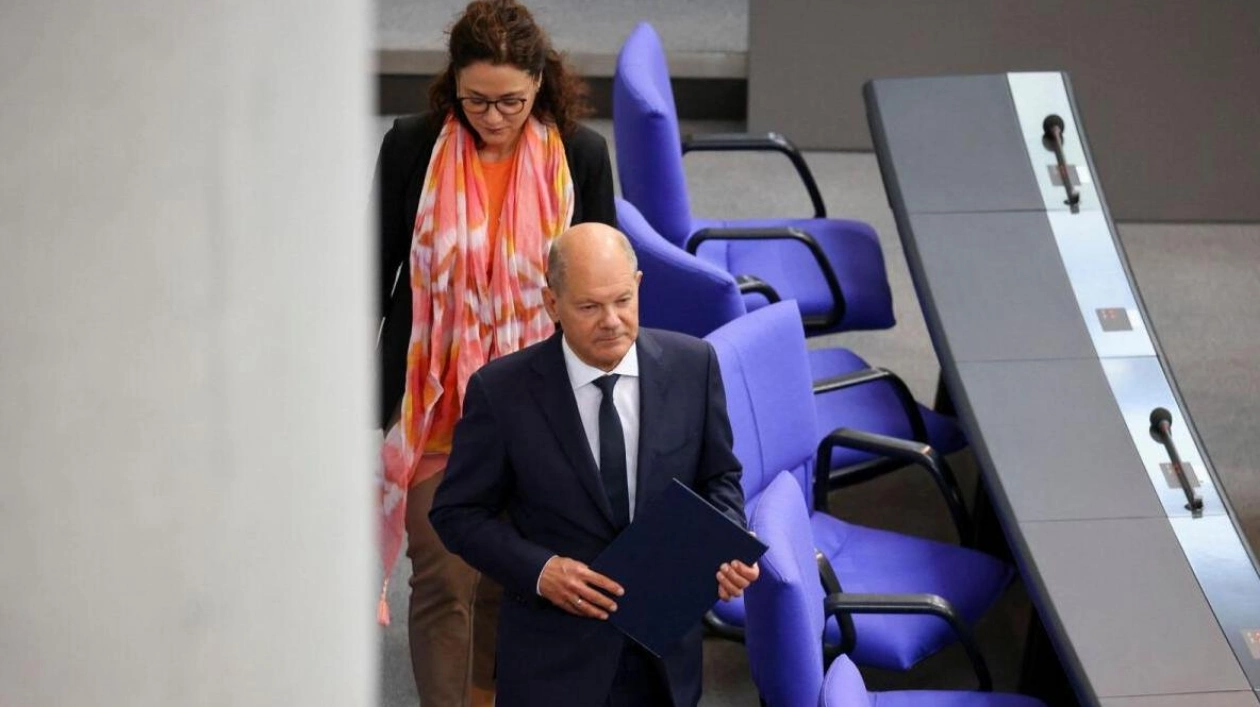Germany's highest court has dismissed a proposal to alter the electoral system that would have negatively impacted smaller parties in national elections, while affirming a modification that aims to reduce the size of the overpopulated Bundestag.
A legislative reform initiated by Chancellor Olaf Scholz's coalition administration to eliminate a special provision of the 5% rule, which parties need to meet to secure seats in the German parliament, was deemed partially unconstitutional by judges of the Constitutional Court. This electoral law reform faced opposition from the conservative Christian Social Union and the Left party, both of whom gain advantage from this exception and are currently in opposition.
Germany's electoral framework, which mandates that only parties securing at least 5% of the total votes can occupy seats in parliament, was established post-World War II to avert parliamentary fragmentation and the rise of minor parties similar to those that supported Adolf Hitler's Nazis in the 1930s. Scholz's coalition aimed to abolish the sole exception to this rule: parties securing the top position in at least three single-member constituencies are awarded parliamentary seats proportional to their nationwide vote share, even if it falls below 5%.
The court's ruling emphasized that removing this exception would undermine the equality of parties, hence it should be retained while the government contemplates adjustments. The most recent party to benefit from this rule was the Left party, successors of the former East German Communist Party, which secured three directly elected mandates and formed a faction with numerous legislators, despite achieving only 4.9% of the nationwide vote. Bavaria's Christian Social Union (CSU), consistently allied with the Christian Democrats (CDU), also reaps benefits. As it only competes in the southeastern state, it seldom exceeds 5%. The CSU maintains its parliamentary presence since it usually wins the majority of Bavaria's 45 constituencies outright.
Thorsten Frei, a prominent CDU lawmaker, commented to the RND media group, "The apparent effort to eliminate political competitors through the manipulation of electoral law has been obstructed."
Nonetheless, the highest court upheld a change in the election law that will reduce the Bundestag, Germany's federal parliament, which has expanded to 733 seats in recent years, to 630 seats, a move that Scholz's coalition hailed as a triumph. Previously, under Germany's distinctive blend of direct and proportional representation, if a party secured more seats through the direct vote than it would under the party vote, it retained the additional seats - but more were added for other parties to accurately reflect their proportional vote. This will no longer apply. Under the revised law, each party will simply enter the Bundestag with its proportional share of the total 630 seats.






